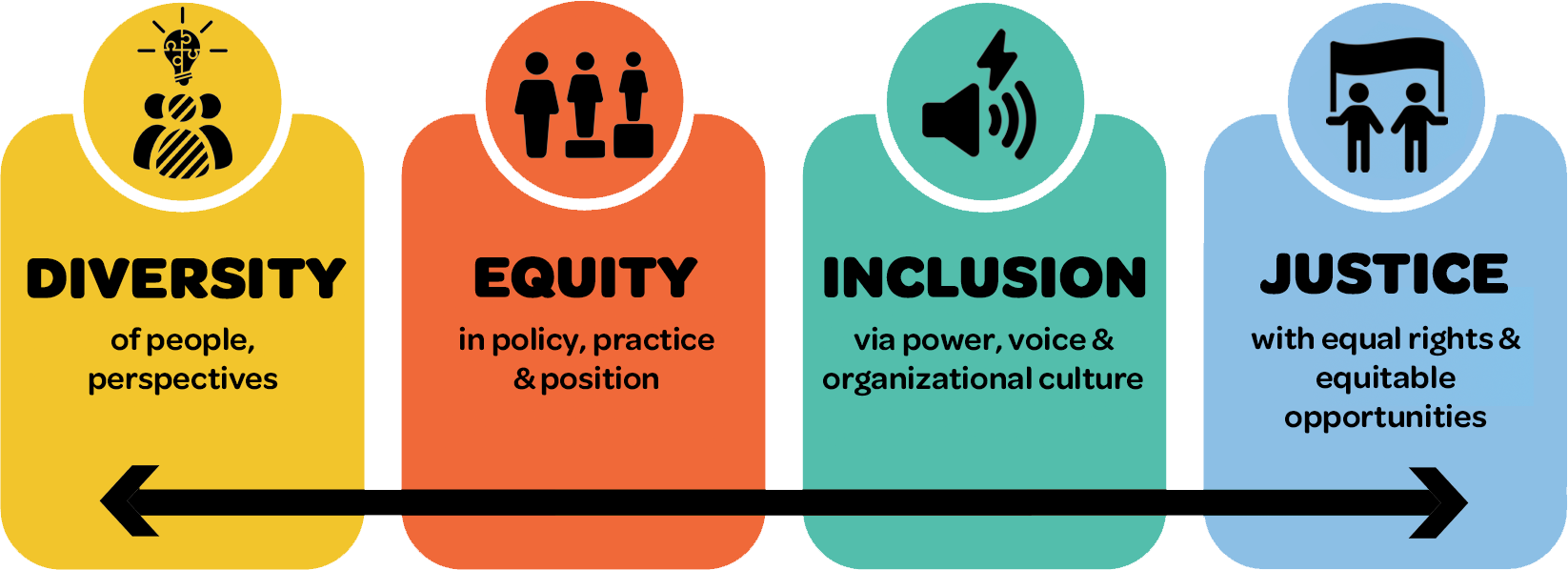In July 2020, Wesleyan Library formed five staff teams to examine how we could fight systemic racism and promote social justice in our organization and daily work, and contribute to a more equitable and just Wesleyan campus and global community. Below are highlights from the initiatives we’ve undertaken this past year and the next steps we are planning. Our work has been shaped by numerous discussions, workshops, and seminars we have participated in as well as the life experiences of our staff. In particular, we were inspired by the work of Dr. Liza Talusan to create an in-house Library DEIJ (Diversity, Equity, Inclusion, and Justice) Summit, which we held on May 19, 2021 to identify further individual and collective action items to make the library a more welcoming and accessible resource. We welcome your feedback and suggestions and would like to collaborate even more with campus and Middletown community groups. Please email Andrew White, Caleb T. Winchester University Librarian at awhite02@wesleyan.edu.
Team A — Walls of the Library
- Team A is working to ensure that the art in the Olin and Science libraries is diverse and reflects the makeup of the Wesleyan community and the world at large.
- They have created art panels currently displayed on the first floor, which highlight different cultures and groups represented in the library’s unique collections.
- Their next project is to examine the placement of presidential portraits in the library, possibly adding more context and hanging them chronologically.
- The team also plans to review other existing artwork and look for opportunities to add new pieces and to collaborate with students and the community.
Team B – Collections
- Team B has been exploring opportunities to further the library’s anti-racism work through programming, exhibitions, outreach, dialogue, and other public-facing initiatives, both within specific collection policies and activities, as well as collaboratively, across departments.
- They are striving to reorient collection conventions, thinking, and practices to become more equitable at the scale of daily decision-making.
- One goal is to engage more with and support various local communities and to ensure that library acquisitions facilitate the goal of making collections more representative.
Team C – Interrogating Cataloging and Description
- Team C is examining the library’s current descriptive practices (for example, in catalog records, archival finding aids, and collection descriptions) to identify where bias exists in our metadata and how descriptive practices can be changed.
- They would also like to set up channels of communication with library patrons to get feedback on the impact of descriptive practices and suggestions for changes and to engage students and interns in this work.
Team D – Improving Hiring and Retention Practices
- Team D is examining hiring practices, staff growth and retention, and internships to see how the organization can prevent implicit bias from disadvantaging BIPOC candidates during the hiring process and through their careers and help all staff thrive.
- The team is looking at expanding internship opportunities, making sure diversity is a key consideration in the hiring process, including on committees, establishing a program to mentor new staff, and providing more professional development training for all staff consistent with the library’s/Wesleyan’s ideals of inclusivity, hospitality, collaboration, and teamwork.
- They are seeking to make it a part of the library’s organizational culture to continuously educate ourselves on the topics of personal development, inclusion, advocacy and allyship.
Team E – Staff Conversations
- Team E’s goal for this year has been to identify opportunities and provide a supportive environment for all library staff to examine and change library practices and culture that inhibit racial equity and social justice.
- Towards this end, the team organized discussion groups around the “Decision making from an anti-oppressive lens” workshop and the DEIJ Summit.
- The next steps will be to make sure the library’s strong commitment to equity and justice is clearly reflected on its website, both in statements and policies, convene the DEIJ team leaders quarterly to share ideas and keep track of progress, and investigate continuing training opportunities for staff.
Image credit: University of Florida


